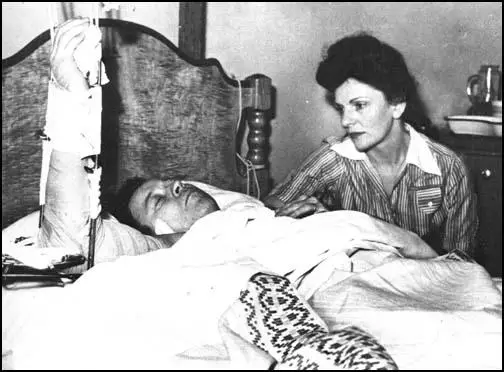On this day on 9th May
On this day in 1800 John Brown was born at Torrington, Connecticut. The family moved to Ohio in 1805 where his father worked as a tanner. John's father was staunchly anti-slavery and was a voluntary agent for the Underground Railroad.
Brown studied for the Congregational ministry in Connecticut but changed his mind and returned to work with his father in Hudson, Ohio. He had a variety of different jobs including work as a tanner, wool merchant, land surveyor and farmer. Married twice, he was the father of twenty children. In 1849 Brown and his family settled in a black community founded in North Elba on land donated by the Anti-Slavery campaigner, Gerrit Smith.
While at North Elba, Brown developed strong opinions about the evils of slavery and gradually became convinced that it would be necessary to use force to overthrow this system. After the passage of the Fugitive Slave Law in 1850, Brown recruited forty-four men into the United States League of Gileadites, an organization founded to resist slave-catchers.
In 1855 Brown and five of his sons moved to Kansas Territory to help anti-slavery forces obtain control of this region. His home in Osawatomie was burned in 1856 and one of his sons was killed. With the support of Gerrit Smith, Samuel G. Howe, and other prominent Abolitionists, Brown moved to Virginia where he established a refuge for runaway slaves.
In 1859 he led a party of 21 men in a successful attack on the federal armory at Harper's Ferry. Brown hoped that his action would encourage slaves to join his rebellion, enabling him to form an emancipation army. Two days later the armory was stormed by Robert E. Lee and a company of marines. Brown and six men barricaded themselves in an engine-house, and continued to fight until Brown was seriously wounded and two of his sons had been killed.
John Brown was tried and convicted of insurrection, treason and murder. He was executed on 2nd December, 1859. Six other men involved in the raid were also hanged. The song, John Brown's Body, commemorating the Harper's Ferry raid, was a highly popular marching song with Republican soldiers during the American Civil War.
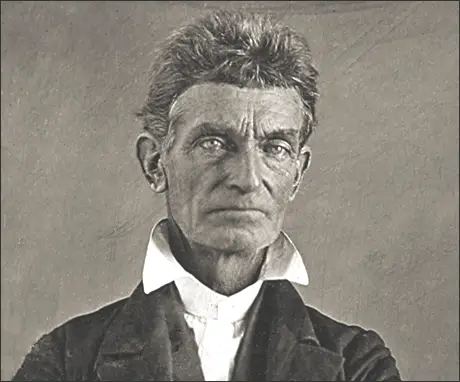
On this day in 1820 Robert Wedderburn is found guilty of uttering a blasphemous libel. In court he told the jury: "Where, after all, is my crime? It consists merely in having spoken in the same plain and homely language which Christ and his disciples uniformly used. There seems to be a conspiracy against the poor, to keep them in ignorance and superstition; the rich may have as many copies as they like of sceptical writers; but if I find two most decided contradictions in the bible, I must not in the language of the same book assert that one or the other is a lie." Found guilty he was sentenced to two years in Dorchester Prison.
On his release Wedderburn published The Horrors of Slavery (1824). He continued to campaign for freedom of speech and in 1831, at the age of 68, he was arrested and sent to Giltspur Street Prison. While in prison he wrote a letter to Francis Place. It was the last time Wedderburn appeared in the archives and it is not known when he died.
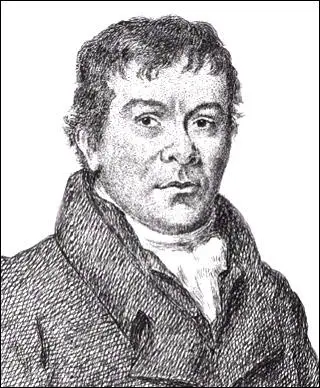
On this day in 1826 Thomas Fowell Buxton makes speech on slavery in the House of Commons. "The voyage, the horrors of which are beyond description. For example, the mode of packing. The hold of a slave vessel is from two to four feet high. It is filled with as many human beings as it will contain. They are made to sit down with their heads between their knees: first, a line is placed close to the side of the vessel; then another line, and then the packer, armed with a heavy club, strikes at the feet of this last line in order to make them press as closely as possible against those behind. And so the packing goes on; until, to use the expression of an eyewitness, "they are wedged together in one mass of living corruption". Thus it is suffocating for want of air, starving for want of food, parched with thirst for want of water, these poor creatures are compelled to perform a voyage of fourteen hundred miles. No wonder the mortality is dreadful!"
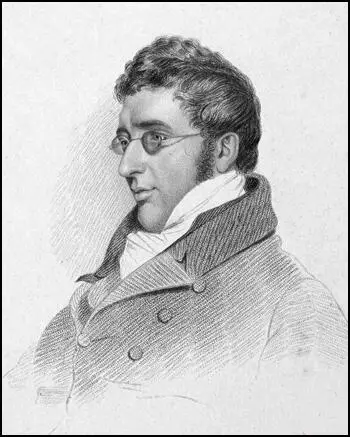
On this day in 1836 there is a debate in the House of Commons on the subject of child labour. It included the following contributions:
Lord Ashley: " Of the thirty-one medical men who were examined, sixteen gave it as their most decided opinion that ten hours is the utmost quantity of labour which can be endured by the children, with the slightest chance of preserving their health. Dr. Loudon reports, "I am of the opinion no child under fourteen years of age should work in a factory of any description more than eight hours a day." Dr. Hawkins reports, "I am compelled to declare my deliberate opinion, that no child should be employed in factory labour below the age of ten; that no individual, under the age of eighteen, should be engaged in it longer than ten hours daily."
William Bolling: "I mistrust interference on behalf of the poor which the poor are themselves to pay for. Let the question be presented honestly and fairly. Let the parents of factory children know that the diminishing the hours of daily toil must diminish the amount of weekly pay. Certainly, there are cases of hardship and oppression, but I dislike all cases of legislative interference between master and man - between parent and child. And, moreover, all such interference would be unsuccessful. Your laws to regulate wages, and hours of labour, and conditions of contract for work - they are merely cobwebs broken through at will - because it is the interest of master and servant that they should be broken. Cultivate commerce with all the nations of the world; this will raise wages and will prevent the necessity for exhausting labour."
John Fielden: "At a meeting in Manchester a man claimed that a child in one mill walked twenty-four miles a day. I was surprised by this statement, therefore, when I went home, I went into my own factory, and with a clock beside me, I watched a child at her work, and having watched her for some time, I then calculated the distance she had to go in a day, and to my surprise, I found it to be nothing short of twenty miles."
Joseph Brotherton: "Under the present system, every man who knows anything of the matter knows that the labour is too much for children to . I have no hesitation in declaring, unequivocally, that the labour is too much for children to bear. When we consider that between 400,000 and 500,000 persons are immured in factories from half-past five to six o'clock in the morning till eight or nine o'clock at night, and this not upon a few particular occasions only, but day after day, week after week, and year after year, during their whole lives, or as long as they are capable of following their employment, I would ask, whether any person professing the Christian religion can sanction such a system as that, or desire that such a state of things should continue? Of what use can education be to those who are employed.
I hold in my hand a copy of a bill which was brought into parliament in the year 1815 by the late Sir Robert Peel, whose memory will long be held in grateful remembrance by the labouring classes in the manufacturing districts, for the humane exertions to shorten the hours of labour in factories. The object of the bill was, to limit the hours of labour to ten hours and a half a day. We had to struggle with the same difficulties as those who are advocates of his views now. I was a master-spinner at that time, and I believe I stood almost, or quite, alone at Manchester in rendering assistance to those who, with Sir Robert Peel, were endeavouring to accomplish what he had designed; and at last, in the year 1819, he succeeded only in carrying a bill which limited the period of labour to twelve hours a day, or seventy-two a week, for all children under the age of sixteen years. It was soon found that the measure was liable to be evaded; and subsequent experience showed that it was evaded. Numerous frauds are committed, and the provisions of the act are continuously violated. It is a common trick, according to the inspectors' reports, for parents to send children of a healthy appearance and sufficient age to a surgeon to procure a certificate, under a false name, for the younger brother or sister.
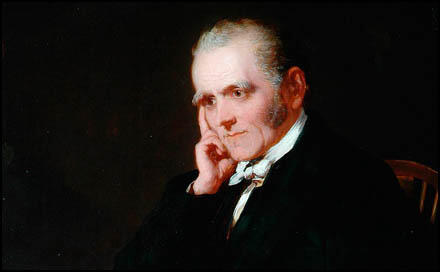
On this day in 1873 Anton Cermak was born in Kladno, Austria-Hungary (now Czech Republic). The following year his parents emigrated to the United States. After six years of formal schooling, Cermak, at the age of twelve, joined his father as a coal miner in Braidwood, Illinois.
Cermak developed a reputation for having strong views and he was selected to be the miner's spokesman in a demand for higher wages. This resulted in him losing his job and he decided to move to Chicago. He found work on the railways before starting his own business selling firewood. With his heavy-set physique and frightening temper he was an imposing man and was considered to have leadership qualities.
Cermak became active in the Democratic Party and in 1902 was elected to the state legislature. Seven years later Cermak became a Chicago City Council alderman. Cermak was able to use his inside knowledge of proposed government land purchase to speculate on real estate. He was also the founder of the Lawndale Building and Loan Association, director of the Lawndale National Bank and a partner in a real estate company Cermak and Serhant. His biographer, Alex Gottfried, claimed that because of his manner, he was popular with voters and seemed to "take pride in his own absence of polish."
Cermak became extremely wealthy and soon became leader of the party in the city. His main opponent was William Hale Thompson, the leader of the Republican Party in Chicago, and a man who was a close associate of Al Capone. Cermak maintained a reasonable relationship with Thompson, which allowed him to keep his patronage jobs and influence in the city. Even his enemies agreed that he was a hard-working politician who was "keenly aware of the most intricate details of the issues of the day".
In 1928 Cermak was selected as the Democrat candidate for the Senate. Although he ran a vigorous campaign but was defeated. It was a good year for the Republicans and Herbert Hoover had a landslide victory. Several states that had previously voted Democrat, such as Texas, Florida, Tennessee, Kentucky and Virginia voted Republican for the first time. Al Smith won 40.8% of the vote compared to Hoover's 58.2%.
The Wall Street Crash in 1929 changed the political direction of the country. Cermak created what became known as the "modern Chicago Democratic Machine". It is claimed that Cermak was probably the first politicians to use statistical analysis to evaluate political performance and develop strategy. Members of the different wards were encouraged to compete with each other and success was rewarded with patronage jobs. Paul M. Green has argued that "never before had Chicagoans seen a political party so organized for battle."
In 1931 Cermak challenged William Hale Thompson, the Republican mayor of Chicago. Cermak accused Thompson of being under the control of Al Capone and other gangsters in the city. He campaigned for social reform and an end to prohibition. Thompson responded by calling Cermak a low-class foreigner. This was a dangerous tactic as at that this time two out of every three Chicagoans was either foreign born or the child of foreign born immigrants. In one speech Cermak commented: "Of course we couldn't all come over on the Mayflower. But I got here as soon as I could."
On 7th April, 1931, Cermak defeated Thompson, by nearly 200,000 votes. This included winning 45 of the city's 50 wards and this gave Cermak the largest victory in Chicago's history. During his time as mayor Cermak spent most of his time dealing with the consequences of the Great Depression. This included cutting services, laying off thousands of workers, and taking away vacation and sick pay from those who remained. To defend his policies Cermak conducted weekly radio talks that he called "intimate chats".
Cermak appointed James Allman as Chief of Police. He had been in the force for 30 years and enjoyed a reputation of being untainted by corruption. Sewell Avery described him as being as "clean as a whistle". The Chicago Crime Commission reported: "During the 12 years that the Chicago Crime Commission has been observing the Police Department there has not come to the notice a single adverse word as to Captain Allman's integrity, ability, efficiency, or independence." Allman was a great success and Chicago's murder rate actually dropped in 1931 and 1932, whereas most other major cities saw their rates rise.
Cermak attended the 1932 Democratic National Convention, that was held to select the presidential candidate. Cermak favoured Al Smith, mainly because he was opposed to Prohibition. This issue was a problem for Franklin D. Roosevelt because much of his support came from traditionally dry areas in the South and West whereas most party members and the general public favoured repeal. Roosevelt told his supporters to "vote as you wish" and that he would be happy to run on whatever platform the convention adopted. In the vote for repeal 934-213. Arthur Krock reported that "the Democratic party went as wet as the seven seas".
The first ballot showed Roosevelt with 666 votes - more than three times as many as his nearest rival but 104 short of victory. Roosevelt's campaign manager, James Farley, approached Cermak, who controlled most of Illinois delegation, about changing his vote. Cermak refused, because he was aware that if he abandoned the Irish-Catholic candidate, he would have trouble from his supporters in Chicago.
Roosevelt won the nomination on the fourth ballot when he won 945 votes. William E. Leuchtenburg, the author of Franklin D. Roosevelt and the New Deal (1963) summed up the situation that the Democratic Party found itself in: "Liberal Democrats were somewhat uneasy about Roosevelt's reputation as a trimmer, and disturbed by the vagueness of his formulas for recovery, but no other serious candidate had such good claims on progressive support. as governor of New York, he had created the first comprehensive system of unemployment relief, sponsored an extensive program for industrial welfare, and won western progressives by expanding the work Al Smith had begun in conservation and public power."
Anton Cermak campaigned vigorously for Roosevelt in the the 1932 Presidential Election and delivered a 330,000 vote majority in Cook County. The turnout, almost 40 million, was the largest in American history. Roosevelt received 22,825,016 votes to Hoover's 15,758,397. With a 472-59 margin in the Electoral College, he captured every state south and west of Pennsylvania. Roosevelt carried more counties than a presidential candidate had ever won before, including 282 that had never gone Democratic. Of the forty states in Hoover's victory coalition four years before, the President held but six. Hoover received 6 million fewer votes than he had in 1928. The Democrats gained ninety seats in the House of Representatives to give them a large majority (310-117) and won control of the Senate (60-36).
Roosevelt was elected on 8th November, 1932, but the inauguration was not until 4th March, 1933. While he waited to take power, the economic situation became worse. Three years of depression had cut national income in half. Five thousand bank failures had wiped out 9 million savings accounts. By the end of 1932, 15 million workers, one out of every three, had lost their jobs. When the Soviet Union's trade office in New York issued a call for 6,000 skilled workers to go to Russia, more than 100,000 applied.
Cermak travelled to Miami on 7th February to have a meeting to discuss who was going to be appointed to Roosevelt's government. Cermak did not want a job for himself but was keen to get some of his followers to have good jobs. He also wanted to make sure Chicago got a share of Roosevelt's promised New Deal. Negotiations with James Farley went well and it was arranged that Roosevelt would meet with Cermak on 15th February at Bayfront Park.
Anton Cermak went to the meeting with James Bowler, another senior politician from Chicago. He later recalled: "Mayor Cermak and I had gone to the park twenty minutes before the President elect was due to arrive, and we sat in the band shell together. When Mr. Roosevelt's car came along the President elect saw the mayor and called to him to come down. Mr. Cermak called back that he would wait until after Mr. Roosevelt had made his speech. Then Roosevelt spoke, and he waited until the mayor came down from the platform to go to the side of the automobile."
Roosevelt explained how after the speech "I slid off the back of the car into my seat. Just then Mayor Cermak came forward. I shook hands and talked with him for nearly a minute. Then he moved off around the back of the car. Bob Clark (one of the Secret Servicemen) was standing right behind him to the right. As he moved off a man came forward with a telegram... and started telling me what it contained. While he was talking to me, I was leaning forward to the left side of the car."
At that moment an Italian immigrant, Giuseppe Zangara, pointed his gun at Roosevelt. At the critical moment an alert spectator, Lillian Cross, hit the assassin's arm with her handbag and spoiled his aim. Zangara fired five shots and they all missed Roosevelt, but did hit others. This included Cermak who received a serious wound in the abdomen. Rex Schaeffer, a journalist working for the Brooklyn Daily Eagle reported: "I stood twenty-feet behind the car of the President-elect. Suddenly - I had given my attention to Mr. Roosevelt - a pistol blasted over my shoulder... Four more shots were fired and at the left of the car of Mr. Roosevelt I saw Mr. Cermak slump down."
Zangara was attacked by the crowd. "He was seized by men and women, dragged between the rows of seats, and then a policeman rushed through the crowd and swung on him with his blackjack. The Sherriff of Dade County, Dan Hardie, was on the platform and as the shots rang out he plunged into the crowd after the shooter, and with the policeman, jerked him errect and threw him on the trunk rack of a defective automobile which was carrying one of the wounded out of the park." Another witness remembers shouts of "Kill that man!" and "Don't let him get away".
L. L. Lee was standing next to Cermak when he was shot. He claimed that his only words were, "The president! Get him away!" Lee and W. W. Wood, a Democratic county committee member, grabbed his arms and walked him towards the president's car." The chauffeur decided to get away from the scene as quickly as possible. Lee then heard Roosevelt shout "For God's sake a man has been shot" and the "car jerked to a sudden stop."
Roosevelt told the New York Times: "I called to the chauffeur to stop. He did - about fifteen feet from where we started. The Secret Service man shouted to him to get out of the crowd and he started forward again. I stopped him a second time, this time at the corner of the bandstand, about thirty feet further on. I saw Mayor Cermak being carried. I motioned to have him put in the back of the car... Mayor Cermak was alive but I didn't think he was going to last. I put my left arm around him and my hand on his pulse, but I couldn't find any pulse... For three blocks I believed his heart had stopped. I held him all the way to the hospital and his pulse constantly improved."
After the shooting Roosevelt remained at Jackson Memorial Hospital in Miami until Cermak was brought out of the emergency room. He spoke with him for several minutes and then visited the other shooting victims. According to the New York Tribune, an unnamed witness heard Cermak tell Roosevelt: "I'm glad it was me and not you, Mr. President."
Anton Cermak died three weeks later on 8th March, 1933. Giuseppe Zangara, an unemployed thirty-two-year-old bricklayer, claimed he acted alone. "I have always hated the rich and powerful. I do not hate Mr. Roosevelt personally. I hate all presidents, no matter from what country they come." After being found guilty was sentenced to death in the electric chair at the Florida State Penitentiary. When he heard his sentence he yelled at the judge, "You give me electric chair. I no afraid of that chair! You're one of capitalists. You is crook man too. Put me in electric chair. I no care!" Guiseppe Zangara was executed on 20th March, 1933.
Some political commentators such as Walter Winchell believed that Cermak was the real target. It was argued that Al Capone or William Hale Thompson had hired Zangara to assassinate Cermak. However, Blaise Picchi, the author of The Five Weeks of Giuseppe Zangara: The Man Who Would Assassinate FDR (2003) argued: "Federal agents conducted an exhaustive investigation of the shooting and could not find no link between Zangara and the Chicago mob."
Cermak's biographer, Alex Gottfried, is also convinced that Cermak was not an hired gunman: "What actually seems to be the case, is that, regardless of what connections might have existed between Cermak and Chicago gangdom, the shooting was neither planned by gangsters nor executed by a gangster hireling. The one way ride, the machine gun tattoo, the shotgun blast - these are their customary and foolproof methods. No plot similar to this shooting is recorded in the annals of gang murder."
In 1950 J. Edgar Hoover, the head of the FBI, was asked to report on the original investigation into the case: "The Secret Service files reflected that there were many allegations, most of which were in the form of anonymous letters, that the attempted assassination was planned by gangsters or some organised criminal group, and that Zangara had been sent to Miami expressly for that purpose. Subsequent investigation, however, indicated that he had been in Miami for several months prior to the incident. There is no indication that Zangara had any knowledge as to the identity of Mayor Cermak of Chicago... There was no evidence that Zangara had been in Chicago nor had any relatives or associates in the city."
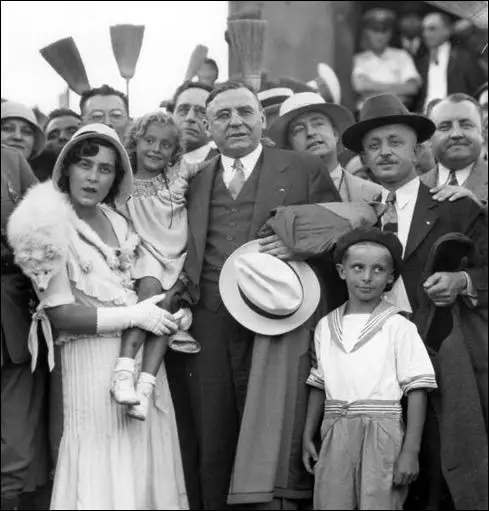
On this day in 1916 Nora Connolly visits her father, James Connolly, in prison for the last time. She wrote about it in her book, Portrait of a Rebel Father (1935).
On Tuesday I went with mother. There were soldiers on guard at the top of the stairs and in the small alcove leading to Papa's room. They were fully armed and as they stood guard they had their bayonets fixed. In the room there was an R.A.M.C. officer with him all the time. His wounded leg was resting in a cage. He was weak and pale and his voice was very low. Mother asked was he suffering much pain. "No, but I've been court-martialled today. They propped me up in bed. The strain was very great." She knew then that if they had court-martialled him while unable to sit up in bed, they would not hesitate to shoot him while he was wounded. Asked how he had got the wound he said: "It was while I had gone out to place some men at a certain point. On my way back I was shot above the ankle by a sniper. Both bones in my leg are shattered. I was too far away for the men I had just placed to see me and was too far from the Post Office to be seen. So I had to crawl till I was seen. The loss of blood was great. They couldn't get it staunched." He was very cheerful, talking about plans for the future, giving no sign that sentence had been pronounced an hour before we were admitted.
He was very proud of his men. "It was a good clean fight. The cause cannot die now. The fight will put an end to recruiting. Irishmen will now realize the absurdity of fighting for the freedom of another country while their own is enslaved." He praised the women and girls who fought. I told him about Rory (Connolly's son; the boy had been arrested with other rebels but had given a false name and was released along with all other boys under sixteen). "He fought for his country and has been imprisoned for his country and he's not sixteen. He's had a great start in life, hasn't he, Nora?" Then he turned to mother and said: "'There was one young boy, Lillie, who was carrying the top of my stretcher as we were leaving the burning Post Office. The street was being swept continually with bullets from machine- guns. That young lad was at the head of the stretcher and if a bullet came near me he would move his body in such a way that he might receive it instead of me. He was so young-looking, although big, that I asked his age. "I'm just fourteen, sir," he answered. "We can't fail now."
I saw father next on Thursday, May 11, at midnight. A motor ambulance came to the door. The officer said father was very weak and wished to see his wife and eldest daughter. Mama believed the story because she had seen him on Wednesday and he was in great pain and very weak, and he couldn't sleep without morphine. Nevertheless she asked the officer if they were going to shoot him. The officer said he could tell her nothing. Through dark, deserted sentry-ridden streets we rode. I was surprised to see about a dozen soldiers encamped outside Papa's door. There was an officer on guard inside the room. Papa turned his head at our coming.
"Well, Lillie, I suppose you know what this means?"
"Oh, James, it's not that - it's not that."
"Yes, Lillie. I fell asleep for the first time tonight and they wakened me at eleven and told me that I was to die at dawn."
Mamma broke down and laid her head on the bed and sobbed heartbreakingly. Father patted her head and said: "Don't cry, Lillie, you'll unman me."
"But your beautiful life, James. Your beautiful life!" she sobbed.
"Well, Lillie, hasn't it been a full life and isn't this a good end" I was also crying. "Don't cry, Nora, there's nothing to cry about."
"I won't cry. Papa," I said.
"He patted my hand and said: "That's my brave girl."
"He tried to cheer Mama by telling her of the man who had come into the Post Office during the Rising to try and buy a penny stamp. "I don't know what Dublin's coming to when you can't buy a stamp at the Post Office."
The officer said: "Only five minutes more." Mama was nearly overcome - she had to be given water. Papa tried to clasp her in his arms but he could only lift his head and shoulders from the bed. The officer said: "Time is up." Papa turned and said good-bye to her and she could not see him. I tried to bring Mama away but I could not move her. The nurse came forward and helped her away. I ran back and kissed Papa again. "Nora, I'm proud of you." Then the door was shut and I saw him no more.
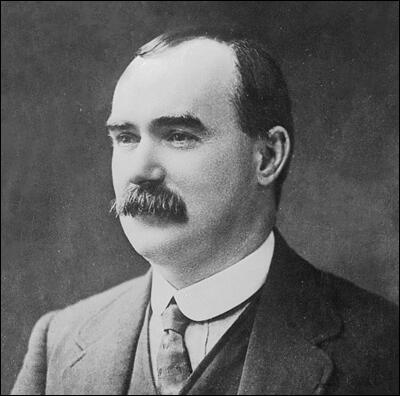
On this day in 1926 leading members of the Conservative Party worry about Winston Churchill's behaviour during the General Strike. One cabinet member, Neville Chamberlain found Churchill's approach unacceptable and wrote in his diary that "some of us are going to make a concerted attack on Winston... he simply revels in this affair, which he will continually treat and talk of as if it were 1914." John C. Davidson, the chairman of the Conservative Party, commented that Churchill was "the sort of man whom, if I wanted a mountain to be moved, I should send for at one. I think, however, that I should not consult him after he had moved the mountain if I wanted to know where to put it."
Davidson, who had been put in overall charge of the government's media campaign, grew increasingly frustrated by Churchill's willingness to distort or suppress any item which might be vaguely favourable to "the enemy". Davidson argued that Churchill's behaviour became so extreme that he lost the support of the previously loyal Lord Birkenhead: "Winston, who had it firmly in his mind that anybody who was out of work was a Bolshevik; he was most extraordinary and never have I listened to such poppycock and rot."
Churchill called for the government to seize union funds. This was rejected and Churchill was condemned for his "wild ways". John Charmley has argued that "Churchill had a sentimentalist upper-class view of grateful workers co-operating with their betters for the good of the nation; he neither understood, nor realised that he did not understand, the Labour movement. To have written about the TUC leaders as though they were potential Lenins and Trotskys said more about the state of Churchill's imagination than it did about his judgment."
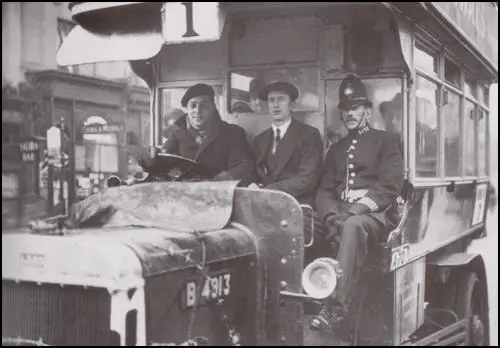
On this day in 1933 the Minister of the Interior, Wilhelm Frick, issues directive on student behaviour in Nazi Germany. He claimed that the idea that history teaching should be objective was a fallacy of liberalism. "The purpose of history was to teach people that life was always dominated by struggle, that race and blood were central to everything that happened in the past, present and future, and that leadership determined the fate of peoples. Central themes in the new teaching including courage in battle, sacrifice for a greater cause, boundless admiration for the Leader and hatred of Germany's enemies, the Jews."
Adolf Hitler appointed the loyal Bernhard Rust as Minister for Education. Rust lost his job as a schoolteacher in 1930 after being accused of having a sexual relationship with a student. He was not charged with the offence because of his "instability of mind". Rust's task was to change the education system so that resistance to fascist ideas were kept to a minimum.
At school the students were taught to worship Adolf Hitler: "As the teacher entered the class, the students would stand and raise their right arms. The teacher would say, For the Führer a triple victory, answered by a chorus of Heil! three times... Every class started with a song. The almighty Führer would be staring at us from his picture on the wall. These uplifting songs were brilliantly written and composed, transporting us into a state of enthusiastic glee."
All school textbooks were withdrawn before new ones were published that reflected the Nazi ideology. Additional teaching materials were issued by Nazi teachers' organizations in different parts of the country. A directive issued in January 1934 made it compulsory for schools to educate their pupils "in the spirit of National Socialism". Children were encouraged to go to school wearing their Hitler Youth and German Girls' League uniforms. School noticeboards were covered in Nazi propaganda posters and teachers often read out articles written by anti-semites such as Julius Streicher.
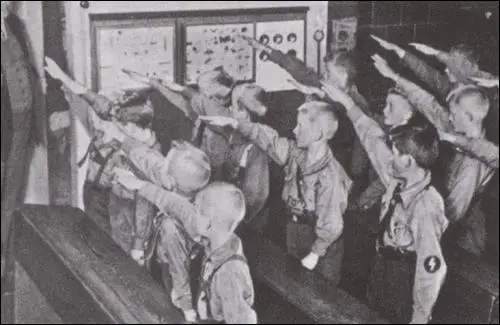
On this day in 1932 Clement Attlee makes speech on poverty. "If the blood - in this case currency - does not reach the extremities, you get cold feet and hands and the people who are in the chilliest part of the body politic today are the poorest people, because currency does not circulate freely to them. I suggest that there is another danger besides that of anaemia or apoplexy. There might be a clot in the brain or the heart. I suggest that the concentration of wealth in a small part of the nation affects both the brain and the heart of the nation."
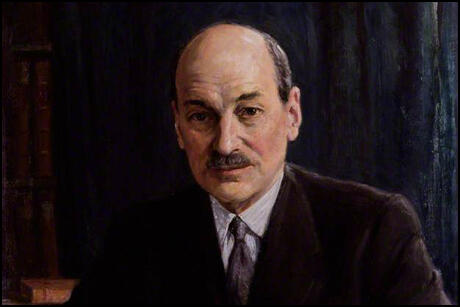
On this day in 1937 George Orwell writes letter to Victor Gollancz on the Spanish Civil War. Orwell wrote to Victor Gollancz about life in Spain. "Owing partly to an accident I joined the POUM miltia instead of the International Brigade which was a pity in one way because it meant that I have never seen the Madrid front; on the other hand it has brought me into contact with Spaniards rather than Englishmen and especially with genuine revolutionaries. I hope I shall get a chance to write the truth about what I have seen."
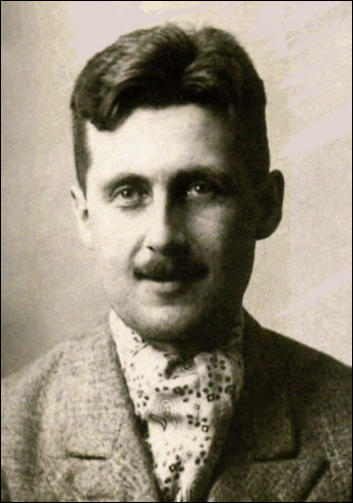
On this day in 1950 Robert Schuman issues declaration that provides the foundation for the European Economic Community (EEC).
World peace cannot be safeguarded without the making of creative efforts proportionate to the dangers which threaten it. The contribution which an organised and living Europe can bring to civilisation is indispensable to the maintenance of peaceful relations. In taking upon herself for more than 20 years the role of champion of a united Europe, France has always had as her essential aim the service of peace. A united Europe was not achieved and we had war.
Europe will not be made all at once or according to a single plan. It will be built through concrete achievements which first create a de facto solidarity. The coming together of the nations of Europe requires the elimination of the age-old opposition of France and Germany. Any action which must be taken in the first place must concern these two countries.
With this aim in view, the French Government proposes that action be taken immediately on one limited but decisive point. It proposes that Franco-German production of coal and steel as a whole be placed under a common High Authority, within the framework of an organisation open to the participation of the other countries of Europe.
The pooling of coal and steel production should immediately provide for the setting up of common foundations for economic development as a first step in the federation of Europe, and will change the destinies of those regions which have long been devoted to the manufacture of munitions of war, of which they have been the most constant victims.
The solidarity in production thus established will make it plain that any war between France and Germany becomes not merely unthinkable, but materially impossible. The setting up of this powerful productive unit, open to all countries willing to take part and bound ultimately to provide all the member countries with the basic elements of industrial production
on the same terms, will lay a true foundation for their economic unification.
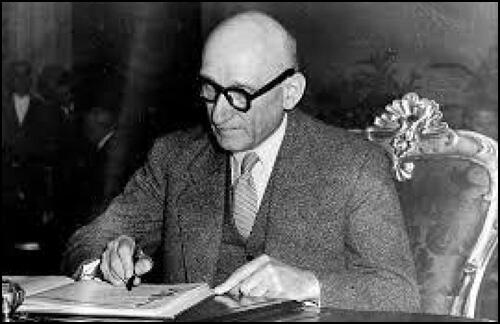
On this day in 1970 American union leader, Walter Reuther, who was active in the campaign against the Vietnam War, was killed in a plane crash in Pellston, Michigan.
Walter Reuther, the son of a trade union and socialist activist, was born in Wheeling, West Virginia, on 1st September, 1907. At sixteen he became an apprentice tool and die maker and three years later moved to Detroit.
In 1929 Reuther enrolled at Detroit City College to study law. He became president of the Social Service Club (the campus arm of the Socialist Party). While at college Reuther arranged for leading socialists such as Norman Thomas and Scott Nearing to speak at meetings.
Reuther joined the Ford Motor Company but his union activities resulted in him losing his job in 1933. Unable to find work during the Great Depression, Reuther left the United States and eventually found employment in an automobile factory in the Soviet Union. Unhappy with the lack of political freedom in the country, Reuther returned to the United States where he found employment at General Motors and became an active member of the United Automobile Workers (UAW).
Reuther remained active in the Socialist Party and in 1937 failed in his attempt to be elected to the Detroit City Council. However, impressed by the efforts by President Franklin D. Roosevelt to tackle inequality, he eventually joined the Democratic Party.
Reuther led several strikes and in 1937 and 1940 was hospitalized after being badly beaten by strike-breakers. He also survived two assassination attempts during this period although one attack left his right hand permanently crippled.
Reuther gradually became a leading figure in the United Automobile Workers (UAW) and in 1946 was elected president after a bitter struggle with supporters of the American Communist Party. Six years later Reuther succeeded Philip Murray as president of the Congress for Industrial Organisation(CIO).
After the Second World War Reuther emerged as one of trade union's leading progressive figures. His support for civil rights and social welfare legislation made him unpopular with conservatives. In the early 1950s the Senate Select Committee on Labor began investigating the trade union movement. Robert Kennedy, chief counsel of the committee, began investigating James Hoffa and the Teamsters Union. Hoffa was a well-known supporter of the Republican Party, and party members on the committee, including Joe McCarthy, Barry Goldwater and Karl Mundt, insisted that trade union leaders associated with the Democratic Party should also be investigated. Reuther was charged but Robert Kennedy discovered no evidence of corruption.
Under Reuther's leadership the UAW grew to 1.5 million members. A successful negotiator, in 1955 he managed to obtain an agreement that gave auto workers almost as much take-home pay when laid off as when at work.
In 1955 the CIO merged with the American Federation of Labour (AFL). George Meany became president of the AFL-CIO and Reuther was appointed vice-president.
Walter Reuther was an active supporter of African American civil rights and participated in both the March on Washington for Freedom and Jobs (August, 1963) and the Selma to Montgomery March (March, 1965).
Reuther found George Meany conservative and dictatorial and in 1968 led the out of the AFL-CIO federation. The following year he joined with the Teamsters Union to form Alliance for Labor Action.
